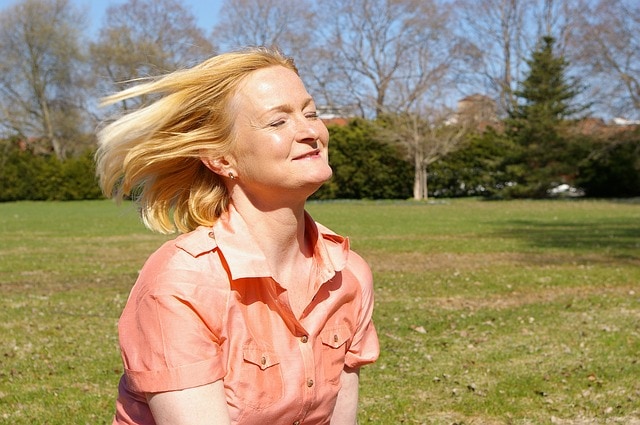Imagine feeling like you are off-balance even though you’re sitting perfectly still. Imagine feeling like you’ve just stepped off a roller-coaster, with the world tilting and spinning around you. This is what vertigo feels like. It can be a debilitating condition that impacts the mobility and confidence of anyone who suffers from it. It also comes with added side effects like nausea. However there are ways to deal with it, including vertigo home remedies that many people find effective.

What is vertigo?
Before we delve into home remedies for vertigo, it is important to address the misunderstanding around vertigo and its causes.
Vertigo is not a fear of heights. This notion was made famous by Alfred Hitchcock’s Vertigo in 1958, which accurately portrayed the feeling of vertigo, but led to false beliefs too. Vertigo is a symptom of an illness rather than a disease by itself. It arises from complications related to the inner ear or the brain.
Vertigo is predominantly related to the inner ear and the mechanisms that help you control your balance. Any condition that affects the functioning of the inner ear almost always results in dizziness and vertigo. Therefore you’ll find that most vertigo home remedies deal directly or indirectly with the inner ear.
How do I know if I have vertigo?
The best way to describe the sensation of vertigo is the feeling you get after being spun around too fast on an amusement park ride. Some of the other common symptoms are nausea, headaches/migraines, sweating and a ringing sensation in the ears are common symptoms. Other less common symptoms include unsteady gait, unusual eye movements and finding it difficult to see clearly when moving.
Because vertigo can be triggered by illnesses that affect the inner ear, the below conditions may cause it:
- Vestibular neuritis or inflammation of the balance system
- Migraines
- Stroke
- Tumours in the inner ear or cerebellum
- Multiple sclerosis
Other less common causes may include:
- Low blood pressure or low blood sugar
- Heart issues
- Anxiety disorders
It is estimated that about 10% of all Australians experience bouts of vertigo but the frequency increases to a staggering 40% for people over the age of 40. It is a common condition representing over half (54%) of all dizziness related complaints by Australians.
Generally, vertigo is not considered dangerous but given the abrupt nature of an attack and compounded with other at risk-activities (driving), it poses significant risk to the health and well-being of all affected Aussies.
Some of the vertigo home remedies mentioned below help deal with immediate effects of an attack while others help to resolve the problem on a long-term basis.
Why you should check before trying vertigo home remedies
If you are experiencing the symptoms of vertigo for the first time, avoid trying vertigo home remedies until you can get yourself properly diagnosed. Understanding the cause is imperative to deciding on an appropriate course of treatment.
Your medical practitioner will ask you specific questions to determine the cause and may suggest various treatments, tests, and medication in addition to home remedies for vertigo.
You will undergo an examination to check your balance and hearing, as well as tests for eye movement function. If all else fails, the doctor conducts an MRI scan of the brain for accurate understanding.
Easy vertigo home remedies to try
The treatment depends on the cause. There are medications available in Australia aimed at mitigating the frequency and strength of the attacks.
The Brandt-Daroff exercise: This exercise works to correcting the physical conditions that cause vertigo. The Brandt-Daroff exercise is the most commonly recommended vertigo home remedy because it is simple, can be performed almost anywhere, and does not require any equipment.
Gingko Biloba is a Chinese herb that you can take to moderates the blood flow to the brain and effectively reduce the symptoms. Do take this only after a consultation with your doctor.
Stress management and diet play an important role in home remedies for vertigo. You may be advised to try yoga or even to consult a nutritionist for dietary requirements.
Improve your general wellbeing: Studies have shown that getting enough sleep, hydration and vitamin D will keep you healthy and help prevent vertigo attacks. Many home remedies for vertigo begin with changes to your diet and lifestyle so that you are less prone to an attack.
Avoid common triggers such as alcohol, stress, and sudden movements or exertion.
What is the prognosis for vertigo?
It is important to understand that vertigo is a symptom rather than a disease, so it is imperative to find out the underlying cause. This will help you identify triggers and try the appropriate vertigo home remedies can be adopted. Most cases of vertigo are not serious and can be treated.

By getting the appropriate medical help and using basic home remedies for vertigo, the prognosis is good. Most individuals with vertigo learn what home remedies work for them so they can handle each episode and continue to lead full and normal lives.



